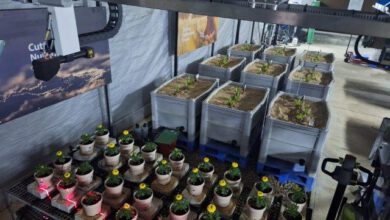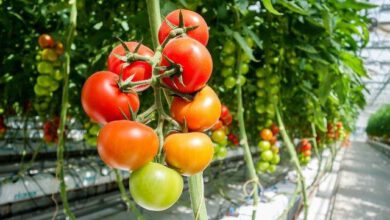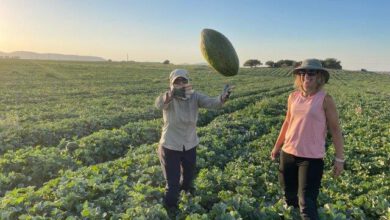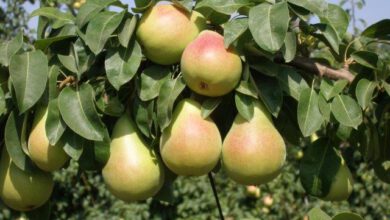Hazera Co. fruit Logistica Berlin 2016 ‘Partners all the Way’
Hazera attended the Berlin Fruit Logistica Trade Show held on 2-5 February this year. It is the largest fruit and vegetable fresh produce trade show in the world.
Interview: Nurit Levy

.jpg)
Visitors to the pavilion were greeted with photographs of customers from all over the world who are partner to Hazera’s philosophy. They appreciated the unique concept of the pavilion as presented by Global Communications Marketing Manager Yael Rosenfeld, Hazera feels that this is a further stage in reinforcing relationships with the fresh produce business chain. We believe in genuine long term partnerships with our customers and the pavilion expresses this special relationship. The faces are those of real people, Hazera customers, who reflect the commitment, the partnership and the expertise that synergise into the added value with which we provide them’.
Indeed, inscribed under each photograph was the testimony of the grower portrayed, indicating that each was satisfied with their collaboration with Hazera, a collaboration which allows them to offer their customers added value down the line to the chain stores and end consumers, from which the success of their enterprise stems.
In its pavilion, Hazera displayed cutting edge products alongside the tried and true, such as Goutine tomatoes, medium sized tomatoes which taste like Cherry tomatoes, tomatoes that bring the taste back to the kitchen, pink tomatoes, yellow snack tomatoes in the size of sweets called Summer Sun, seedless mini watermelons in the 2 kg range with their deep red internal colour and very sweet taste, undoubtedly attractive to the end consumer. There was Tinty, a new and very tasty red pointed cabbage, and a small white radish – a refreshing departure from the usual mauve colour. While there, we interviewed two leading Hazera sales managers for the European market.
Interview with Frank Druyff – Root Crop Sales Manager
|
|

At the outset, Frank mentioned that The Netherlands is the largest onion exporter in the world, that 90% of its crop is earmarked for export, that it is distributed to over 100 countries in various parts of the world: Africa, Brazil, England, East Asia and that an important part of it is produced fromHazera seeds. Hazera also provides the seeds for 60% of Germany’s onions.
Frank makes it clear that much of Hazera’s success hinges on the long shelf life of its final products.
Frank notes that seed quality is measured by several parameters, such as high yield of the variety, resistance to disease and long shelf life of the final product, which generate healthy profits all along the distribution chain, from the growers to the retail marketers worldwide.
He claims that the main advantage of Hazera’s onions is that they can be kept in cold storage for up to a year, which allows plenty of flexibility regarding introduction to the market. The grower decides when to withdraw the onions from cold storage, to get the best price when demand is greatest. He thus controls the price and, in consequence, his profits.
To the question regarding the tending required for growing onions, he replied that the main item is weeding, since European law stipulates that only organic means may be used for weed control. It should be noted that Hazera varieties feature resistance to both diseases and pests. Both organic and non-organic onion seeds are available. Frank’s formula is ‘less work, fewer diseases and greater yields’.
Interview with Hazera Regional Manager Joachim Middendorf

Joachim has held his current role for the past five years. He previously worked for the parent company Limagrain for 25 years and he is responsible for sales in Germany, Austria, Switzerland, the Czech Republic and Slovakia.
Joachim reiterates Yael’s explanations, refers to Hazera’s policy and observes that ‘our objectives are to enter into long term associations with growers and create partnerships, partnerships all the way’.
He feels that one of the key advantages of Hazera varieties, the one that gives it its market edge, is the combination of long shelf life with high quality. Tomato varieties for example have been adapted for both greenhouse and field planting, and also for various harvesting times.
Joachim proudly presents a chart for the various varieties of radish with planting times, which actually covers the entire year, meaning that crops ripen throughout the year and that fresh small radishes can be supplied to market perennially.
Small radishes are available both loose and in bunches. Hazera also provides the niche market with a boutique small white radish.
Export – production is mainly earmarked for Europe and Russia.
Joachim says that the radishes’ red and white colour combination together with their green leaves is appropriate for countries with red, white and green flags and adds that the consumption of multi-coloured radishes increases during the football season.
Consumption preferences stem mainly from taste preferences – Germans like to eat cooked red cabbage, particularly red pointed cabbage, but cabbage can also be served in fresh salads, for example combining the colours of sweet crunchy white cabbage together with the spherical red, with a strong colour.

The red pointed cabbage is very popular and one of the large European chain stores distributes it together with a recipe pamphlet.
To my question regarding growing conditions, Joachim says that the red pointed cabbage is mainly grown in northern Germany, in the Baltic Sea region, where it is an easily grown field crop, but also in countries such as The Netherlands and the UK, and more countries are following now.
While we were speaking, Stoffels, a customer and partner entered. His photograph graces a pavilion wall as a grower of the successful Goutine tomatoes in Belgium, highly tasty big size tomatoes which are currently spreading to Western Europe. With him was a grower from Israel, Ido Nahum, who came to congratulate Hazera for attending this important fresh produce trade show. Ido has been growing Whitney tomatoes in recent years. These are supplied to the Israeli consumer in a clear, heart shaped packaging. Tomatoes with a romantic touch, and a unique taste and aroma.




